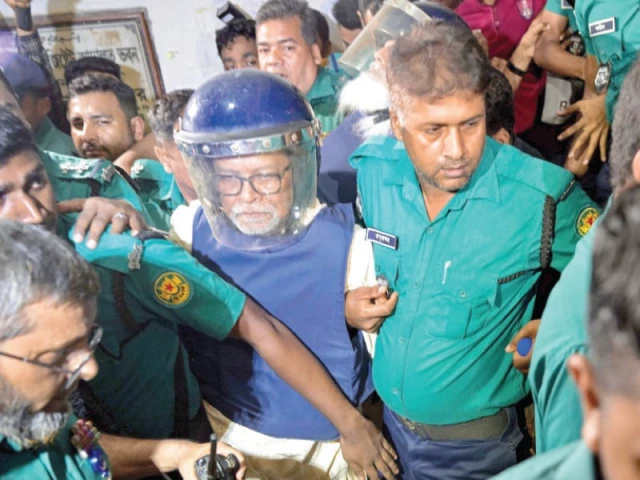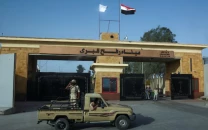Bangladesh detains ex-election chief
Commission probing into Hasina-era abuses warns 'impunity' remains

A Bangladesh court on Monday remanded in custody the former elections chief for his alleged role in rigging the vote in favour of now-ousted autocrat Sheikh Hasina.
KM Nurul Huda, 77, was ordered to be detained for four days while questioning continues, a day after a mob who smashed into his home and assaulted him eventually handed him to the police.
On Sunday, the powerful Bangladesh Nationalist Party (BNP) filed a case against Huda and other former election commissioners it accuses of rigging past polls in favour of Hasina, whose 15 years in power ended in an-masse uprising in August 2024.
Hours after the case was filed, a mob stormed Huda's home in Dhaka, and dragged him onto the street. They put a garland of shoes around his neck and beat him up before handing him over to the police.
The interim government condemned the incident and urged people not to take the law into their own hands.
"Swooping on an accused and physically assaulting him is illegal, contrary to the rule of law, and a criminal offence," the statement read.
Interim leader Muhammad Yunus has said elections will be held in early April 2026 -- the first in the South Asian nation of around 170 million people since the student-led revolt ousted Hasina.
Police put a helmet on Huda while taking him to the court for his protection.
Human rights organisations also condemned the attack on Huda. "It was a complete violation of... the rule of law," Abu Ahmed Faijul Kabir from the rights group Ain O Salish Kendra said in a statement.
Meanwhile, a government-appointed commission investigating hundreds of disappearances by the security forces under ousted premier Sheikh Hasina on Monday warned that the same "culture of impunity" continues.
The Commission of Inquiry into Enforced Disappearances is probing abuses during the rule of Hasina, whose government was accused of widespread human rights abuses.
That includes the extrajudicial killing of hundreds of political opponents and the unlawful abduction and disappearance of hundreds more.
"Enforced disappearances in Bangladesh were not isolated acts of wrongdoing, but the result of a politicised institutional machinery that condoned, normalised, and often rewarded such crimes," the commission said, in a section of a report released by the interim government on Monday. "Alarmingly, this culture of impunity continues even after the regime change on August 5, 2024".



















COMMENTS
Comments are moderated and generally will be posted if they are on-topic and not abusive.
For more information, please see our Comments FAQ